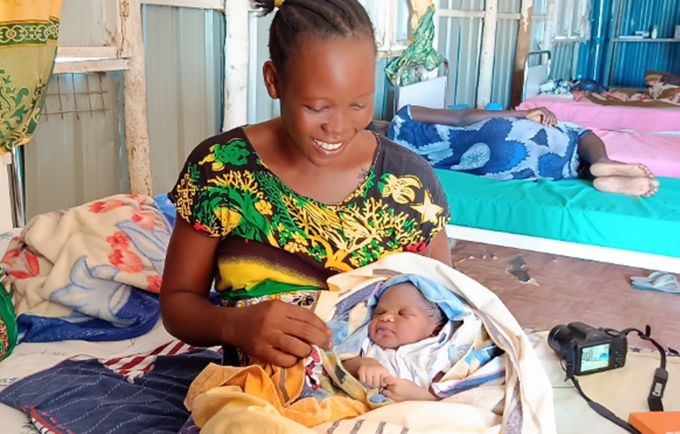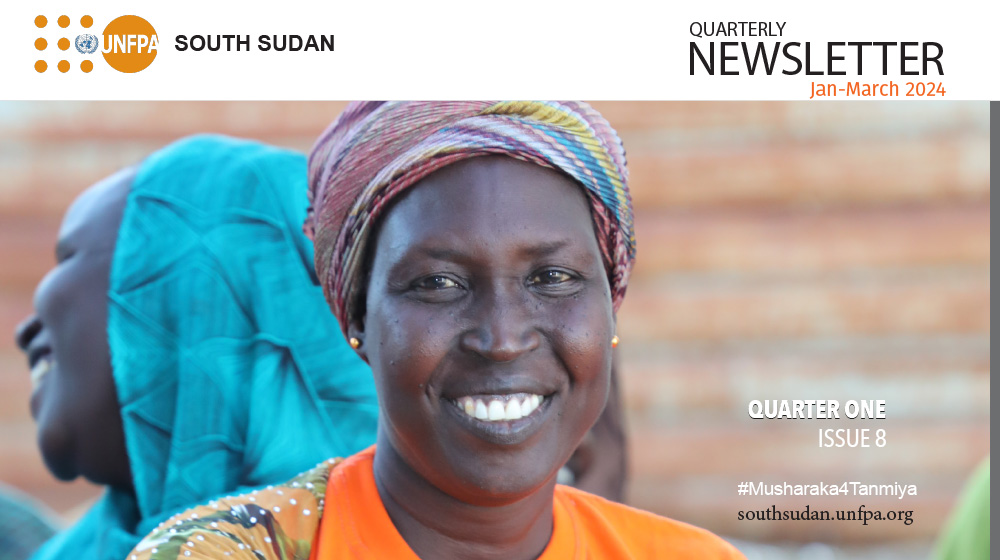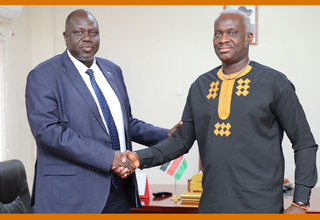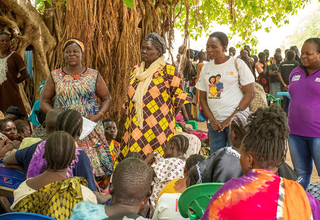Mingkaman - Inadequate health facilities across South Sudan have pushed the country’s population to largely depend on services provided by development partners. The many years of civil strife, aggravated by hazardous climatic changes and the devastating impact of the covid-19 pandemic continue to slow the realization of health as a right for all, everywhere.
Mingkaman hosts over 200,000 people, among them 100,00 internally displaced persons who fled to the area following the 2013 conflict. Another 53,000 people arrived from the neighboring counties following flood displacement in 2021 in addition to over 50,000 host community members. The vulnerabilities and shocks across these populations are multiple and intersecting.
The Mingkaman Reproductive Health Clinic established by UNFPA at the height of the 2013 political crisis is the only reliable health facility in the area. A Primary Health Care Center-PHCC operated by the Government is overstretched by the enormous needs of the staggering population. Many NGO partners have since pulled out of the area due to funding gaps. The Mingkaman Reproductive Health Clinic is run by IMA World Health.
Ayak Kongor Kuay is 22 years old, and one of the many women who frequent this clinic for skilled services. Currently, in her first pregnancy, Ayak visits the facility for ante-natal services. She says seeking the services of qualified health professionals is the best thing women should do to avoid preventable risks. adding that gone are the days when mothers would be attended to by Traditional Birth Attendants.
“You get the tetanus injection. You are given vitamins. The nurses and midwives advise you on so many health and pregnancy-related issues. I have no problem coming here and I advise all women to fully attend their ANC sessions and give birth in the hospital,” Ayak says.
Ayak, far right waiting to be attended to at the Mingkaman RH clinic
In the Maternity Ward is 28-year-old Mary Robert who has just given birth to her fourth baby, following the trend of her two other children who were also born in a hospital. Like Ayak, Mary vouches for skilled delivery in the hospital to avoid the risk of complicated pregnancy and childbirth.
‘I am originally from Eastern Equatoria, but I’m now based in Mingkaman. This is the second child I’m having in this health facility. The services here are good. As you can see, the ward is clean, and the nurses and midwives are friendly. I urge all women to give birth in a hospital,” Mary advises.
Mary Robert with her newborn baby at the Mingkaman R/H maternity ward
The ECHO, UNFPA, and Inter-Medical Church Aid-IMA partnership and collaboration with the community has sustained the Mingkaman Reproductive Health Clinic for close to 9 years with no record of maternal death. Stakeholders and community leaders including the newly appointed Commissioner, Garang Mawut Phillip, have applauded the services provided at the clinic, saying it has filled the void left by the Government and other health actors.
“This clinic is providing vital health services to the host and the displaced community, without which, I can assure you, the situation in Awerial would have been worse,” said John Parach, the Relief and Rehabilitation C coordinator in Awerial.
South Sudan has one of the highest maternal mortality rates in the world. Endemic conflict and unpredictable bouts of humanitarian crises have stifled the realization of preventable maternal deaths and the unmet need for family planning. Building resilient health systems that empower communities is thus imperative and urgent.




